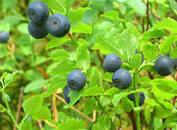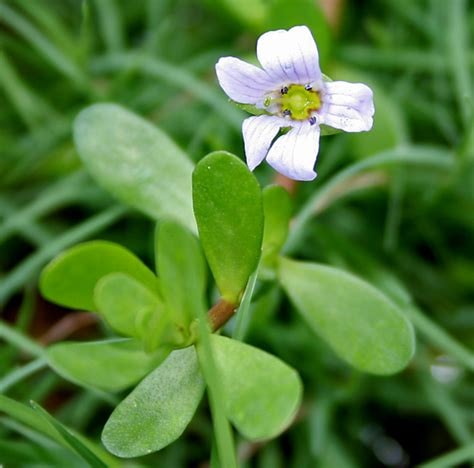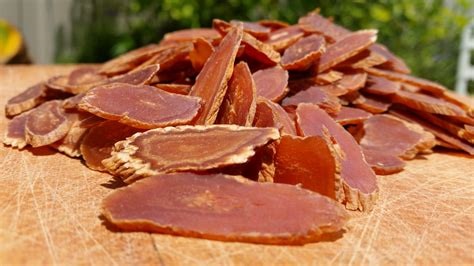Keep Your Brain Sharp with Natural Herbs


When we marvel at the longevity of centenarians, it is their mental sharpness until the very end that is so impressive. That is usually because, for most of them, they have not experienced cardiovascular disease and they have maintained strong arteries.
Reduced blood flow and reduced oxygenation can create problems, including heart attack and stroke, that are often ignored. If your goal is to increase your blood flow and improve your vascular health and brain function, there are many natural resources found in herbs that can help.
Did you know that the body has 60,000 miles of blood vessels, fueled by the oxygen we breathe, that are long enough to circle the globe twice over? And every system in our body relies on oxygen to create the energy in our blood flow that we need to move our muscles, to digest food, to think; to keep us alive.
Simultaneously, red blood cells will pick up waste carbon dioxide and pump it back into the lungs where it is released from the blood into the air sacs and breathed out. Air is breathed in; oxygen is picked up by the blood and the journey begins again.
Healthy blood flow is crucial for good health and mental sharpness. Your blood streams all nutrients; vitamins, minerals, sugars, fats, and proteins throughout the body; and delivers oxygen, glucose, nutrients, hormones, and white blood cells that keep us alive.
Here are some herbs that may improve both your blood flow and oxygenate your brain:
Ginko Leaf (Ginko Biloba)

Ginkgo is one of the oldest plants used in herbal and natural medicine, as well as in Traditional Chinese Medicine (TCM). Ginkgo Biloba benefits are now commonly used today for memory loss and degenerative diseases of the brain and central nervous system.
Ginkgo is known to increase the circulation of blood and oxygen to all parts of the body. The herb is thought to be an effective overall tonic that aids in the treatment of a variety of conditions, ranging from ringing in the ears to impotence. Premenstrual Syndrome (PMS), Seasonal Disorder (SAD), and depression may be reduced with regular consumption of Ginkgo Biloba extracts. Its benefits also include some eye related issues like macular degeneration, retinopathy, and glaucoma.
The Ginkgo tincture may also help to provide relief for those with frequent headaches, sinusitis, vertigo, Reynaud’s disease and the shaking and loss of muscle coordination typical in Parkinson’s disease.
Given that Ginko Biloba has a great safety record, it’s one of the supplements you should strongly consider adding to help support brain health.
Bilberry Leaf (Vaccinium myrtillus)

The beneficial activity of Bilberry is mainly due to components called anthocyanins, according to the Memorial Sloan-Kettering Cancer Center. Anthocyanins have anti-inflammatory properties and protective effects on blood vessels. This herbal extract also has antioxidant properties and scavenge free radicals, (harmful substances in the body that can cause cell damage and disease).
Because Bilberry fortifies capillaries and strengthens veins, it helps to improve blood circulation by increasing the ability of fluids and nourishment to pass freely. This is particularly valuable to the elderly, who suffer from poor circulation to the hands and feet. Bilberry has been used to treat chronic venous insufficiency, a condition that causes leg swelling, varicose veins, leg pain and skin ulcers. Bilberry also has potential uses in treating bruises and hemorrhoids.
Bilberry has been uses, traditionally 0to regulate blood glucose in people with diabetes. Research has shown this herb to be useful in the treatment of retinopathy, the damage that can occur to the retina of the eye due to chronic high blood sugar or high blood pressure.
Brahmi (Bacopa Monnieri)

Brahmi (Bacopa Monnier) has long been used in Ayurvedic medicine to enhance longevity and cognitive ability. The herb is believed to help improve memory formation, as well as reduce anxiety.
Brahmi is an adaptogen herb, and a good overall tonic. Its characteristic help your body adapt to new or stressful situations. It is fitting that the meaning of Brahmi is “herb of grace”, as it has been found to be useful in the treatment of mental illness, by helping to balance one’s general psyche.
Brahmi has various other applications in traditional medicine as an anti-inflammatory and to help ease chronic joint pain and muscle pain. It has also been used successfully for epilepsy, tumors, headaches, or migraines and for decreasing high blood pressure.
Cayenne Pepper (Capsicum minimum)

Cayenne Pepper , Capsicum, also known as bird pepper, red chili pepper, and Guinea spice is full of vitamin C and carotenoids, is one of the most efficient herbs to available to enhance the protocol for hypoglycemia and a slow metabolism. When used in herbal combinations, Cayenne pepper acts as a catalyst and can enhance the power of all other herbs.
A rich antioxidant source containing vitamin C, A, B-complex, Cayenne possesses very high levels of essential minerals. Though it has been shown to help reduce excess cholesterol, Cayenne tinctures have also been shown to normalize blood sugar levels, LDL cholesterol levels, and may be beneficial for weight loss.
Ginseng Root-Korean Red/Panax Ginseng (Shui chu)

Ginseng has been used to stimulate the natural function of the body’s stress-response system to keep the adrenal glands from “burning out” during prolonged periods of stress. It is best known as an adaptogen bringing the body into balance and has been found by many to help relieve fatigue and boost the body’s defense against stress.
Apart from having none of the side effects associated with caffeine, Ginseng is known to influence both energy and stamina, while having a soothing effect on nerves. Studies have found that treatment with Ginseng improved the ability to complete detailed tasks, perform mental arithmetic and improve memory, attention, concentration, and a general ability to cope. It is also said to improve reaction to visual and auditory stimuli, as well as visual and motor coordination.
And according to the American Academy of Family Physicians, Ginseng’s positive effects on mental function could be better cognition and memory, improved speed of recall, and improved accuracy during tasks that require mental attention.
One of the most beneficial things you can do for your health and well-being is to make sure that you have a good blood supply circulating, unimpeded, throughout your body and brain. And because good blood flow throughout the body, not just the brain, is so important, using herbs in combination with a healthy lifestyle can play a crucial role in maintaining an optimal quality of life as you age.
Tags: bacopa, bilberry, biloba, brahmi, cayenne, ginko, ginseng, health&herb, korean ginseng
Comments are closed here.